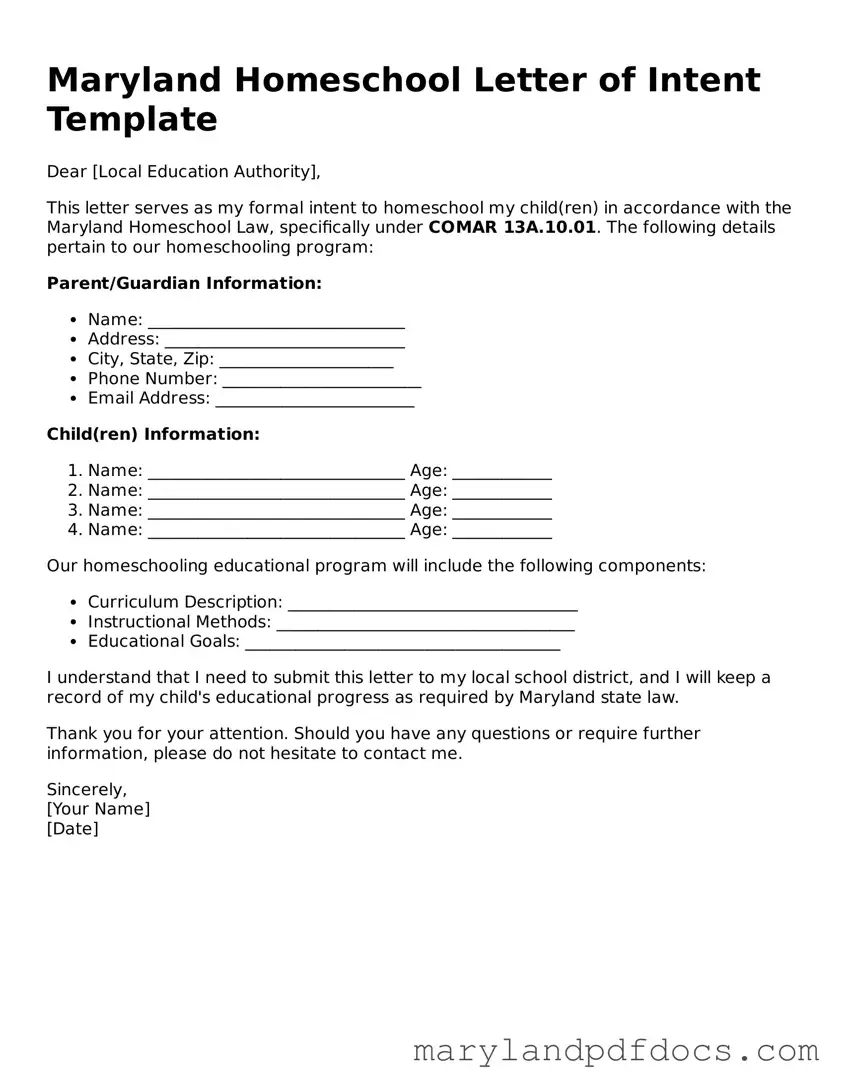Printable Maryland Homeschool Letter of Intent Template
The Maryland Homeschool Letter of Intent is a crucial document that parents must submit to officially notify the state of their decision to homeschool their children. This form outlines the educational plan and ensures compliance with state regulations. To get started on your homeschooling journey, fill out the form by clicking the button below.
Launch Homeschool Letter of Intent Editor

Printable Maryland Homeschool Letter of Intent Template
Launch Homeschool Letter of Intent Editor

Launch Homeschool Letter of Intent Editor
or
Free Homeschool Letter of Intent PDF
You’ve already started — finish it
Fill out Homeschool Letter of Intent digitally in just minutes.